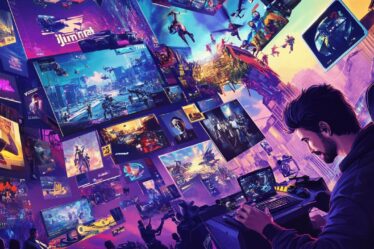
The gaming landscape in South Korea has been revolutionised by a new phenomenon sweeping across the nation – Everlusting Life. This immersive game has captured the attention of players from all demographics, creating a cultural sensation that extends beyond traditional gaming communities. What exactly is driving this unprecedented popularity, and why has it resonated so deeply with South Korean gamers specifically? Let's explore the fascinating intersection of gaming, culture, and society that has made Everlusting Life the talk of the nation.
The Cultural Resonance of Everlusting Life in South Korea
Everlusting Life has struck a profound chord with South Korean audiences largely due to its thoughtful incorporation of local cultural elements. The game developers at EverlustingLifeGame.com have masterfully woven traditional Korean folklore and historical references throughout the gameplay experience, creating an authentic connection with players. This cultural familiarity provides comfort while simultaneously educating younger generations about their heritage in an entertaining format.
Elements of Korean folklore and traditions within the game
What sets Everlusting Life apart from other gaming experiences is its nuanced integration of Korean folklore figures, traditional ceremonies, and historical narratives. Players encounter characters inspired by folk heroes and mythological beings that many South Koreans grew up hearing about from their grandparents. The game also features virtual recreations of traditional festivals and practices, allowing players to participate in digital versions of cultural rituals that are becoming less common in modern society. This preservation of cultural heritage through interactive media has resonated deeply with multiple generations of South Korean players.
Social connectivity features appealing to Korean gaming communities
South Korea has long been grappling with issues of social isolation, particularly among its youth population. Government data suggests that approximately 340,000 people aged 19 to 39 (about 3% of this age group) are considered socially isolated, with many fitting the 'hikikomori' profile of extreme withdrawal. Against this backdrop, Everlusting Life offers meaningful social connectivity features that address these societal challenges. The game creates virtual communities where players can forge connections, participate in collaborative activities, and develop friendships in a low-pressure environment. For a country where a third of family units are single-person households as of 2022, these digital social spaces provide valuable opportunities for connection.
Technical and accessibility factors driving adoption
 Beyond its cultural relevance, Everlusting Life has gained tremendous popularity due to several technical and accessibility factors that align perfectly with South Korea's technological landscape and demographic realities.
Beyond its cultural relevance, Everlusting Life has gained tremendous popularity due to several technical and accessibility factors that align perfectly with South Korea's technological landscape and demographic realities.
Mobile optimisation catering to South Korea's tech-savvy population
South Korea boasts some of the world's most advanced digital infrastructure, with exceptional internet connectivity and smartphone penetration. The developers of Everlusting Life have capitalised on this by creating a seamlessly optimised mobile experience that performs flawlessly on the devices that most South Koreans already own. This technical excellence matches the expectations of a population that has witnessed remarkable progress in many aspects of life. Just as life expectancy in South Korea dramatically increased from 52.4 years in 1960 to 78.5 years by 2005, technological advancement has proceeded at a similarly impressive pace. Everlusting Life's smooth performance, quick loading times, and minimal battery consumption make it an ideal fit for the country's on-the-go lifestyle.
Low entry barriers and free-to-play model expanding the player base
The inclusive nature of Everlusting Life's economic model has significantly contributed to its widespread adoption. The game implements a free-to-play structure with optional in-game purchases, removing financial barriers to entry while still providing avenues for monetisation. This approach has democratised access to the gaming experience, allowing participation regardless of economic status. This accessibility is particularly important in addressing the income disparities that exist within South Korean society. While the country has seen dramatic economic growth, with gross national income per capita increasing from less than US $100 in 1960 to US $20,045 in 2007, not all citizens have benefited equally from this prosperity. The game's inclusive economic model echoes some governmental approaches to addressing social issues, such as the initiative to provide monthly payments of up to 650,000 won to lower-income reclusive youths to help them reintegrate into society.
The mental health benefits of Everlusting Life should not be overlooked either. In a society where cardiovascular diseases, cancer, and notably, suicide contribute significantly to mortality statistics, games that provide stress relief and social connection can play a valuable role. While government-funded counselling and intervention programmes are essential, accessible digital spaces for relaxation and community building complement these formal support structures. The immersive world of Everlusting Life offers players a temporary escape from the intense societal expectations that many South Koreans cite as reasons for withdrawal and isolation.



